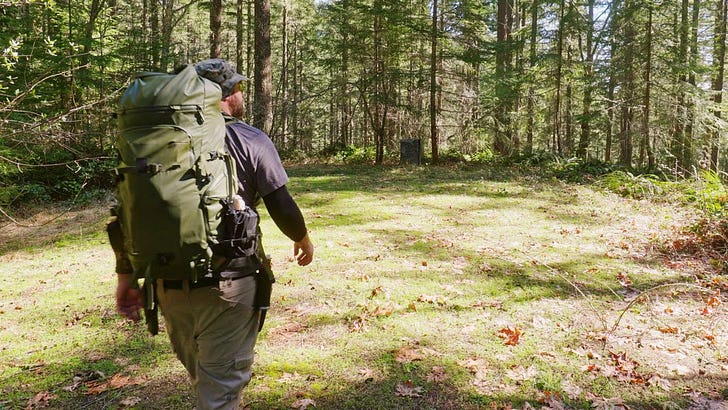Video: How To Choose a Perfect Campsite (Part 2 of 2)
Visual Demonstration of the WISE CAMPERS Protocol
As a prelude to this topic, yesterday I wrote about why camping skills are so important in a collapse curriculum, but also for ecoconsciousness and sustainable living practices.
“In the context of societal collapse, where the potential for hostility and conflict increases, the importance of certain camping skills—specifically those related to operating discreetly and safely in a potentially hostile environment—becomes even more critical. These skills extend beyond basic survival to include strategies for concealing one's presence, navigating without drawing attention, and ensuring safety without compromising one's position or resources. Incorporating these elements into our understanding of resilience and self-reliance adds a nuanced layer of preparedness for facing the challenges of an uncertain future.”
Last week I wrote a complete guide to selecting a place to camp, using the WISE CAMPERS protocol. Check that out for full explanations of each principle. This video is a supplement to that guide, giving an overview of these concepts with a visual component.
You can always just remember the 4 Ws of campsite selection as well. Wind, Water, Widowmakers and Wildlife. These are things to consider when selecting your spot to hunkerdown.
I’ll have more about setting up shelters and land navigation coming up next. We are covering the topics outlined in the Scout Level I syllabus, the beginnings of our Collapse Curriculum. Beyond permaculture, agroforestry, homesteading and other sustainable living approaches, we focus on how communities will have to work together to provide themselves with security. This will have immediate application in some places around the planet. Either way it’s about being ready to navigate in austere conditions, whether that’s for intelligence gathering, trade, or communications.
One of the immediate benefits is reclaiming our connection to the natural world. When we as individuals or as groups venture into the outback of wherever we live, we reconnect to the ecology. This can only be a good thing, not only for our morale, but for what it has to teach us about ourselves.
Camping has been a life-long pursuit for me. My connection to the forests, grasslands, creeks and lakes goes back to my early childhood. I believe it is that connection that has imbued me with such passion for ecological advocacy. Food for thought.




